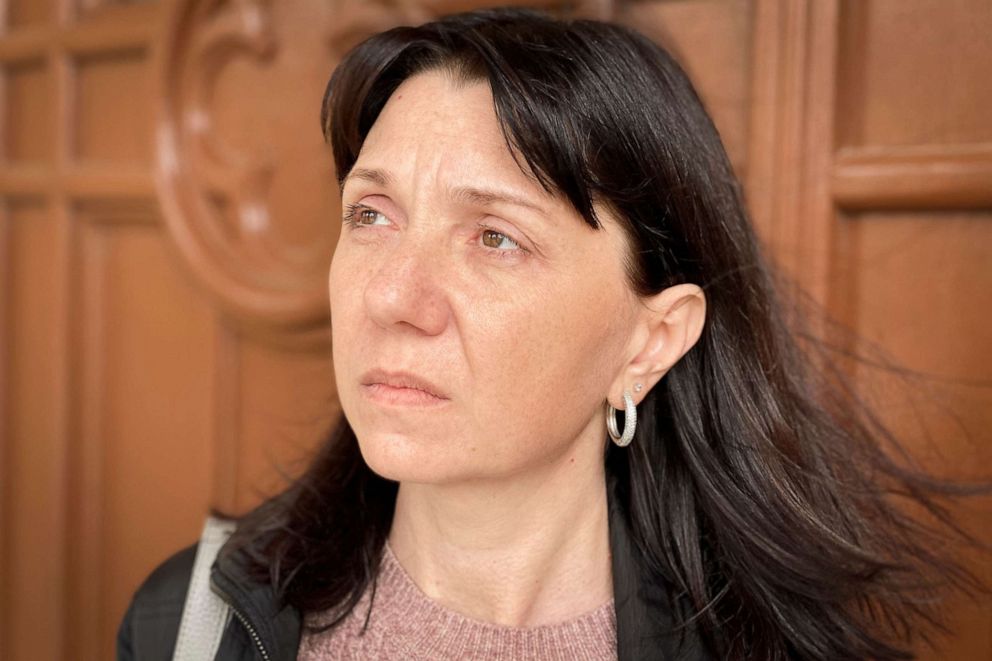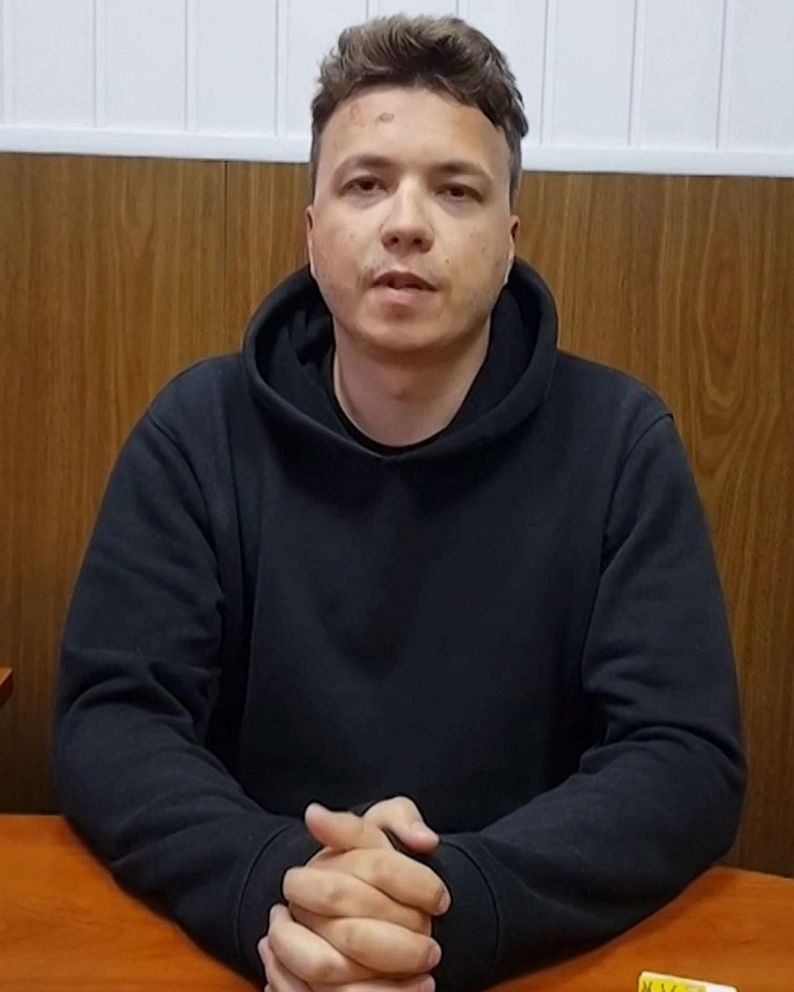Who is Roman Protasevich, the blogger seized by Belarus?
Belarus arrested Roman Protasevich after 'hijacking' a Ryanair passenger flight.
The shock and a sense of sickening horror were immediate among Roman Protasevich's family and colleagues in Belarus' pro-democracy movement, they say, when they realized the passenger plane carrying him was in a place it should never had been.
The 26 year-old journalist and activist had been hunted by Belarus' authorities even before mass protests broke out against its dictator, Alexander Lukashenko, last summer. But during the peaceful uprising that had nearly toppled Lukashenko, often called 'Europe's last dictator', Protasevich had become one of the regime's most wanted opponents. And now he was in its hands.

"It was really scary because I knew what would happen to Roman," said Hanna Liubakova, a prominent journalist who had a fellowship with Radio Free Europe/Radio Liberty that Protasevich also received.
The extraordinary lengths Belarus' government went to get hold of Protasevich reflects the importance they attribute to his role in last year's protests. Belarus used a false bomb threat to force the Ryanair flight carrying Protasevich and another 120 passengers from Athens to Lithuania to divert to Minsk, sending a fighter jet to escort it. After detaining Protasevich and his 23 year-old girlfriend, Sofia Sapega, Belarusian authorities released a video which showed the journalist appearing to make a forced confession, and with physical signs he may have been beaten.
"He was really wanted," Liubakova told ABC News in an interview this week. "Because Lukashenko is so afraid of information." It was also, she said, a "signal to everyone that we are not safe."
Protasevich became involved in journalism and Belarus' pro-democracy movement as teenager, covering pro-democracy protests. In 2019, he was forced to flee Belarus for Poland after his work began to attract dangerous attention from the authorities.
There he linked up with another young blogger Stsiapan Putsila, who had founded the online news outlet, NEXTA, that was based on YouTube and the messenger app, Telegram, which is widely used as a news source in former Soviet countries.
From Warsaw, NEXTA built up a following in Belarus, relying on tips sent to it by readers, which multiplied as its success grew.

The channel had already attracted the attention of Lukashenko's security services and its offices were placed under Polish police protection.
Then the protests began last August after Lukashenko declared victory in a presidential election widely rejected as rigged. Authorities shut off Belarus' internet for three days as police attacked demonstrators in Minsk, using rubber bullets and stun grenades.
With the internet down, NEXTA -- based in Poland quickly became the go-to source for both Belarusians in the country and the outside world trying to understand what was happening.
NEXTA and its sister channel NEXTA Live's following ballooned -- at their peak, growing to over 2 million subscribers, making NEXTA the largest information source in the country.
The channels allowed people to see protesters taking to the streets. NEXTA also issued calls in real-time telling people where to gather, guiding them away from police and how to link up with one another.
Videos showing violence from police and the torture and beating of hundreds of people in Minsk's jails circulated widely on NEXTA, fueling the anger that swelled protests.
In the weeks following, NEXTA and other Telegram channels published dates and locations for where demonstrations would begin -- playing an essential role in coordinating the largely leaderless movement.
"Given the fact that NEXTA is the largest source of information in Belarus right now, he was probably seen as the main threat, enemy number one or at least in top three," said Tadeusz Giczan, NEXTA's current editor-in-chief, who took over part of Protasevich's role running its Telegram posts last year.
Protasevich left NEXTA last year and joined another popular Telegram channel. He was deeply involved in Belarus' exiled democracy movement when he was arrested.
"He knows a lot, he knows everything. He was the one behind all the planning process, all the organization process," Giczan said.
Belarus' authorities had put Protasevich on a terrorism watch list and opened criminal cases against him on charges of organizing mass disorder and inciting hatred. In the video aired by Belarusian authorities, Protasevich said he would confess to the disorder charges which carry a maximum sentence of up to 15 years in prison.

"They accuse him of terrorism-- what terrorism? He just showed the truth, he showed -- not just to Belarusians but the whole world what is happening," Protasevich's mother Natalya, told ABC News this week from Poland, where she and her husband Dmitry moved from Belarus last year.
She said she had worried about her son's work sometimes but that she had believed in what he did.
"I understood very well of course what he himself would say to me 'Mama, if not me, then who? It's my profession. I must cover these events. I must get the truth to the people,'" she said.
Inside Belarus, authorities have been intensifying repression, targeting journalists in particular.
Since last year, NEXTA had been receiving dozens of death threats posted under their content, Giczan said, but also said they had not taken them very seriously.
"Obviously now we need to reconsider this -- maybe take our security more seriously," he told ABC News by phone. But he said there was little they could do since they had limited protection.
"I don't know what we can do really in these cases. Because if the Belarusian authorities want to kill or to kidnap us, it's not very difficult, to be honest," he said.




